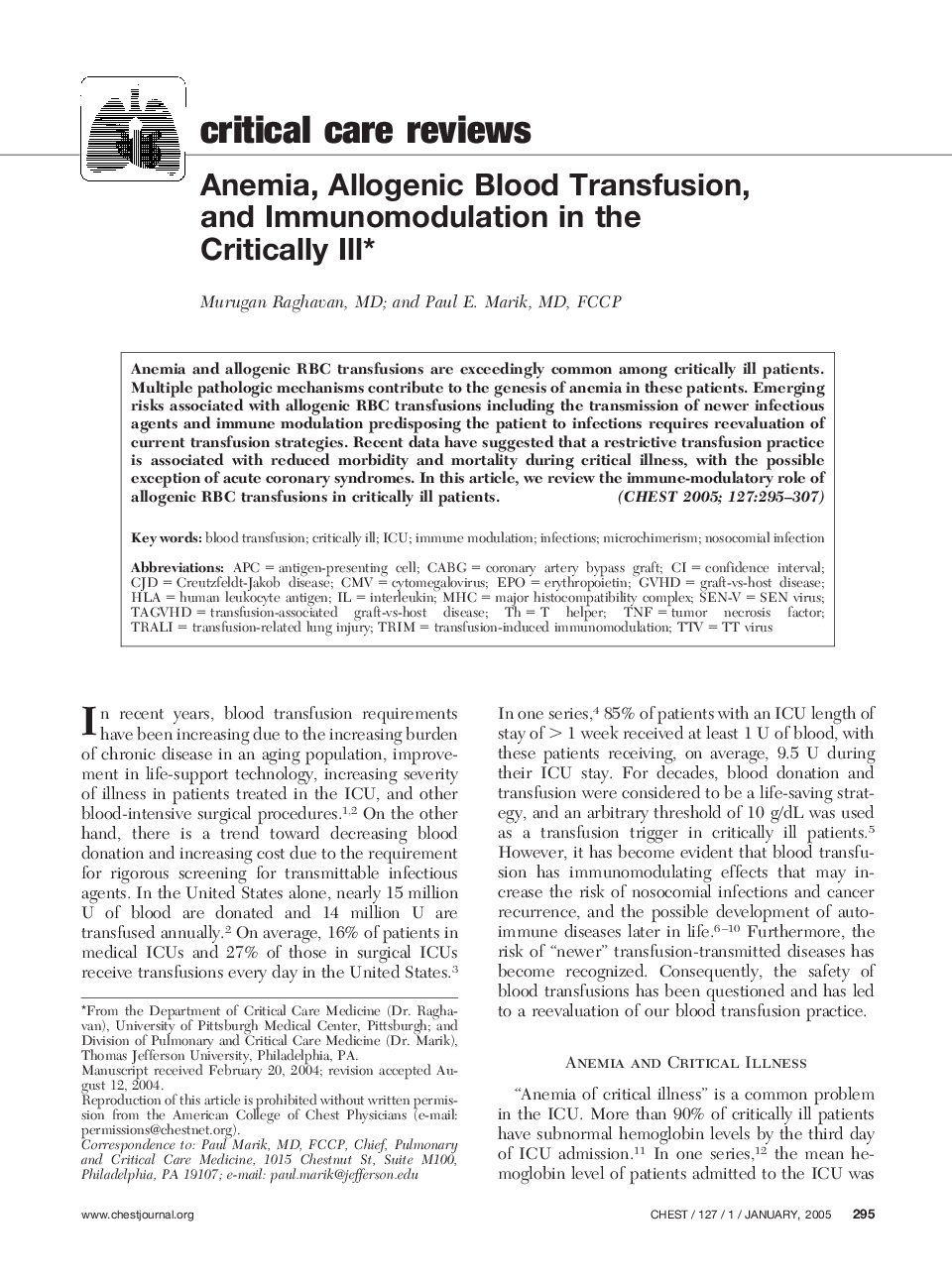| Article ID | Journal | Published Year | Pages | File Type |
|---|---|---|---|---|
| 9164618 | Chest | 2005 | 13 Pages |
Abstract
Anemia and allogenic RBC transfusions are exceedingly common among critically ill patients. Multiple pathologic mechanisms contribute to the genesis of anemia in these patients. Emerging risks associated with allogenic RBC transfusions including the transmission of newer infectious agents and immune modulation predisposing the patient to infections requires reevaluation of current transfusion strategies. Recent data have suggested that a restrictive transfusion practice is associated with reduced morbidity and mortality during critical illness, with the possible exception of acute coronary syndromes. In this article, we review the immune-modulatory role of allogenic RBC transfusions in critically ill patients.
Keywords
SEN Virustransfusion-related lung injuryTNFGvHDTRALIEPOT helperTRIMAPCCJDTTVmicrochimerismTT virusHuman leukocyte antigenantigen-presenting cellHLAerythropoietininterleukinICUcritically illCreutzfeldt-Jakob diseasegraft-vs-host diseaseBlood transfusionCABGcytomegalovirusCMVNosocomial infectionInfectionsconfidence intervaltumor necrosis factormajor histocompatibility complexMHCImmune modulationCoronary artery bypass graft
Related Topics
Health Sciences
Medicine and Dentistry
Cardiology and Cardiovascular Medicine
Authors
Murugan MD, Paul E. MD, FCCP,
